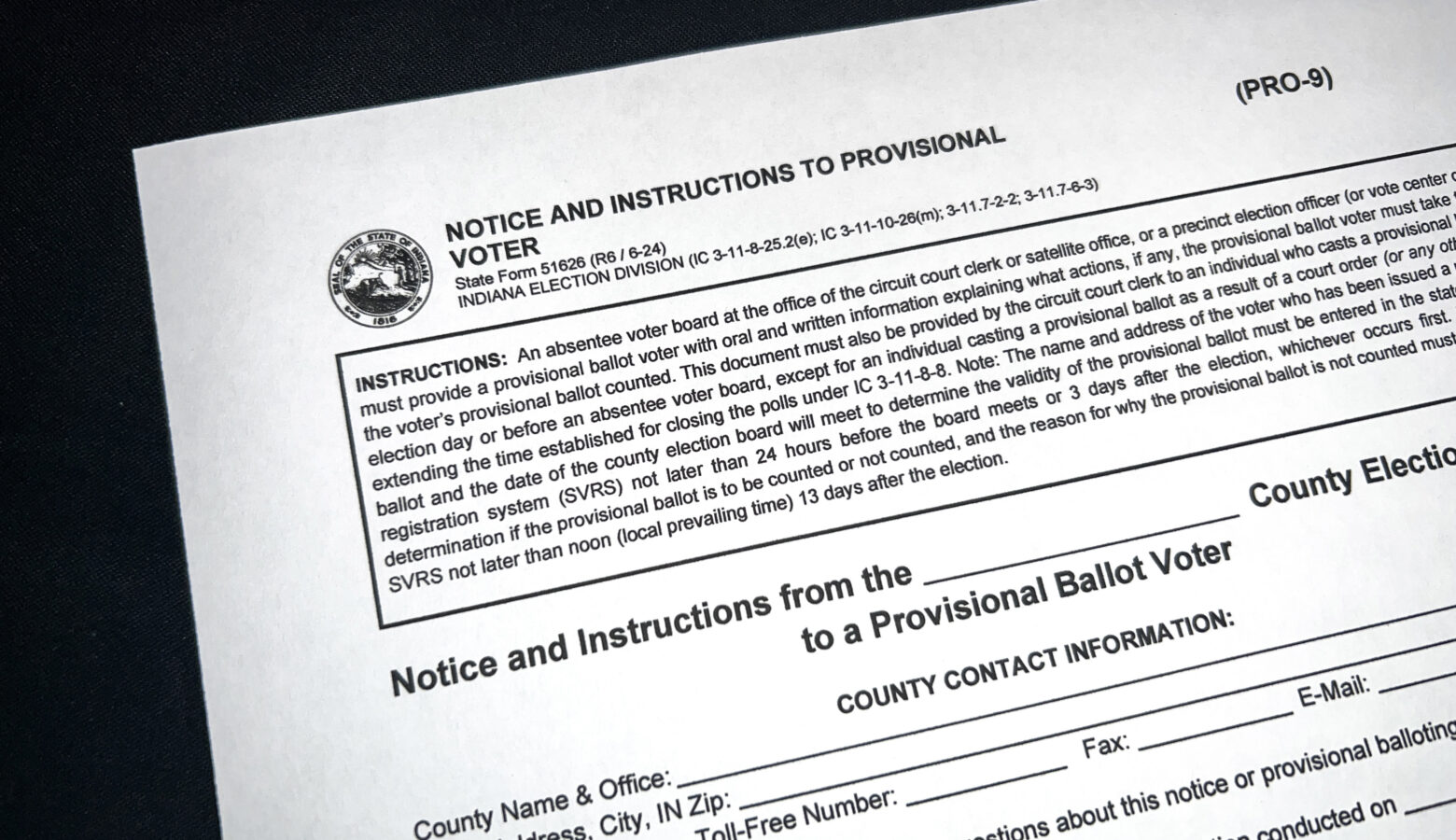How is a voter challenged at their polling place? And what happens next?

Indiana Secretary of State Diego Morales said questioning the citizenship of half a million registered voters is not about trying to remove people from the voter rolls. Rather, it’s setting the stage for local officials to challenge voters at the polls this fall.
There are only a handful of reasons a voter can be challenged at their polling place. They include residency issues, like a recent move; not showing the required identification; first-time voters not showing required proof of residency; the voter’s signature on the Election Day poll list not matching their signature on their registration record; if the voter isn’t at least 18 years old; and if the voter isn’t a U.S. citizen.
Only certain people can challenge a voter: precinct election board members, a poll worker if the signatures don’t match, and credentialed challengers appointed by political parties or independent candidates.
READ MORE: What do I need on Election Day? The general election is Nov. 5
Join the conversation and sign up for the Indiana Two-Way. Text “Indiana” to 765-275-1120. Your comments and questions in response to our weekly text help us find the answers you need on statewide issues and the election, including our project Civically, Indiana.
If a person is challenged for one of the specified reasons, they can still vote using a provisional ballot, which are kept separate from regular ballots.
The county election board must hold a hearing for each provisional ballot within 10 days of Election Day. The voter can attend that hearing and provide evidence that their vote should count.
Brandon is our Statehouse bureau chief. Contact him at bsmith@ipbs.org or follow him on Twitter at @brandonjsmith5.
